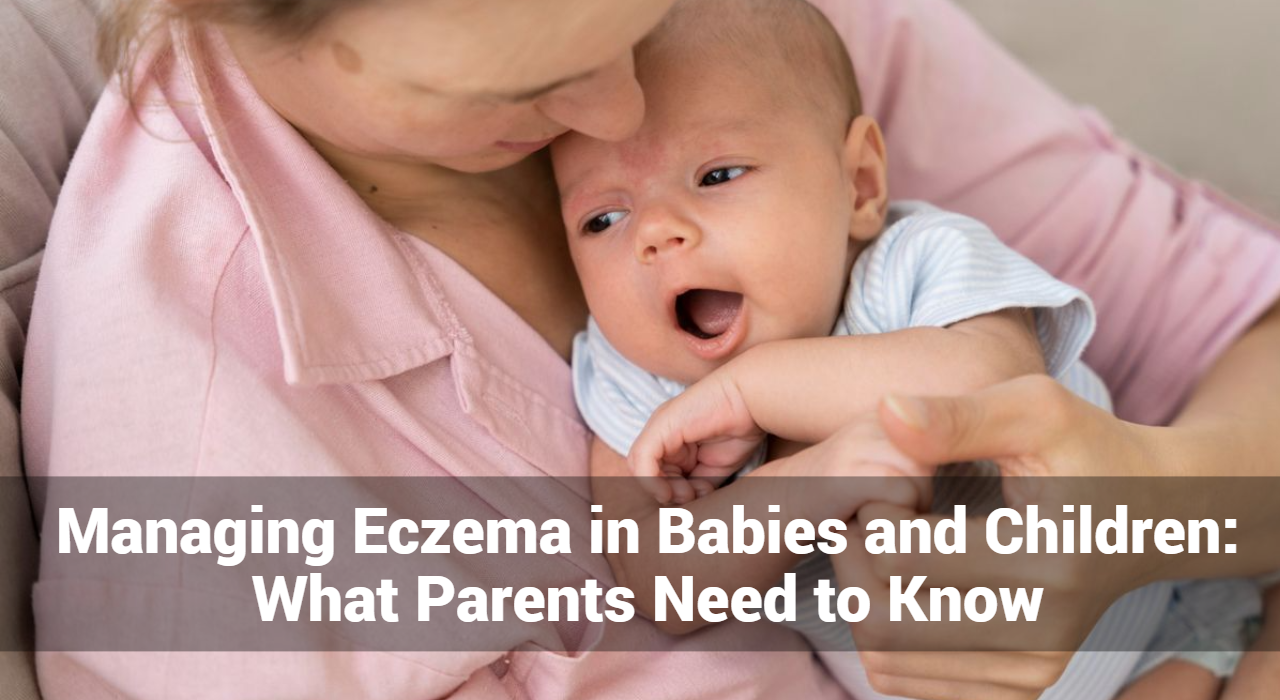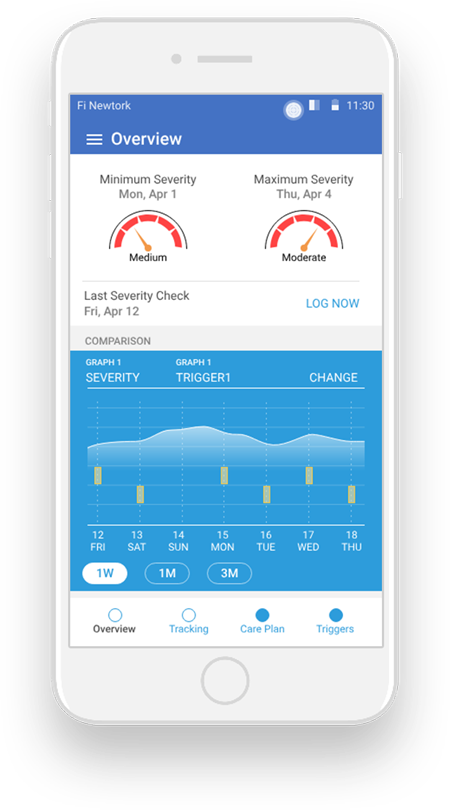Managing Eczema in Babies and Children: What Parents Need to Know

Eczema, also known as atopic dermatitis, is a common skin condition that can affect babies and children. It often appears as red, itchy patches on the skin, which can be distressing for both the child and the parents. However, with proper management and care, eczema can be controlled to minimize discomfort and flare-ups. In this article, we’ll discuss effective strategies for managing eczema in babies and children, providing parents with the information they need to help their little ones find relief.
Understanding Eczema in Babies and Children
Before delving into management strategies, it’s essential to understand what eczema is and how it manifests in babies and children. Eczema is a chronic inflammatory skin condition characterized by dry, itchy, and inflamed skin. In babies, eczema often appears on the face, scalp, and body creases, while in older children, it may affect other areas such as the elbows, knees, and wrists. The exact cause of eczema is not fully understood, but it is believed to involve a combination of genetic and environmental factors.
Preventing Eczema in Babies and Children: Tips for Parents
- Maintain Proper Skin Hydration: Keeping your baby’s skin well-hydrated is crucial in preventing eczema flare-ups. Use fragrance-free and hypoallergenic moisturizers regularly, especially after bathing, to help lock in moisture and maintain the skin barrier.
- Choose Gentle Skincare Products: Opt for mild, fragrance-free cleansers and detergents specifically formulated for sensitive skin. Avoid products containing harsh chemicals, dyes, or perfumes that can irritate delicate skin and trigger eczema symptoms.
- Avoid Overheating: Overheating can exacerbate eczema symptoms, so dress your baby in loose-fitting, breathable clothing made from soft, natural fabrics like cotton. Keep the room temperature comfortably cool, and avoid excessive bundling, especially during warmer months.
- Manage Environmental Triggers: Identify and minimize exposure to potential triggers that can aggravate eczema symptoms, such as pet dander, dust mites, pollen, and certain foods. Use allergen-proof covers on mattresses and pillows, vacuum regularly, and consider air purifiers to improve indoor air quality.
- Practice Gentle Bathing Habits: Bathe your baby with lukewarm water using mild, fragrance-free cleansers designed for sensitive skin. Limit bath time to no more than 10 minutes, and pat the skin dry gently afterward instead of rubbing. Avoid using hot water, as it can strip the skin of its natural oils and worsen eczema.
- Moisturize, Moisturize, Moisturize: Regularly apply a thick layer of moisturizer to your baby’s skin, paying particular attention to areas prone to eczema flare-ups, such as the face, hands, and creases of the elbows and knees. Moisturizers help prevent dryness and itching, reducing the likelihood of eczema developing or worsening.
- Be Mindful of Food Allergens: While food allergies are not a direct cause of eczema, they can trigger or exacerbate eczema symptoms in some children. If you suspect certain foods may be contributing to your child’s eczema, consult with a pediatrician or allergist for guidance on allergy testing and dietary management.
- Minimize Stress: Stress and emotional factors can influence eczema symptoms, so strive to create a calm and nurturing environment for your baby. Engage in soothing activities like baby massage or gentle rocking to help your baby relax and unwind.
- Seek Early Intervention: If you notice signs of eczema or persistent skin issues in your baby, consult with a pediatrician or dermatologist promptly. Early intervention and proper skincare can help manage eczema effectively and prevent complications.
- Follow a Consistent Skincare Routine: Establish a consistent skincare routine for your baby, including regular moisturizing, gentle cleansing, and avoiding potential irritants. Consistency is key in preventing eczema flare-ups and maintaining healthy, resilient skin.
By implementing these preventive measures and adopting a proactive approach to skincare, parents can help reduce the risk of eczema and promote optimal skin health in their babies and children. Always consult with a healthcare professional for personalized advice and guidance tailored to your child’s individual needs.
Managing eczema in babies and children can be challenging, but with the right strategies and support, parents can help their little ones find relief from symptoms and enjoy healthier, happier skin. By understanding the triggers, establishing a skincare routine, managing itch and discomfort, and seeking medical advice when needed, parents can effectively manage their child’s eczema and improve their quality of life.
GET IN CONTROL OF YOUR ECZEMA
Use our AI tool to check the severity of Eczema and keep track of your Eczema progress.



